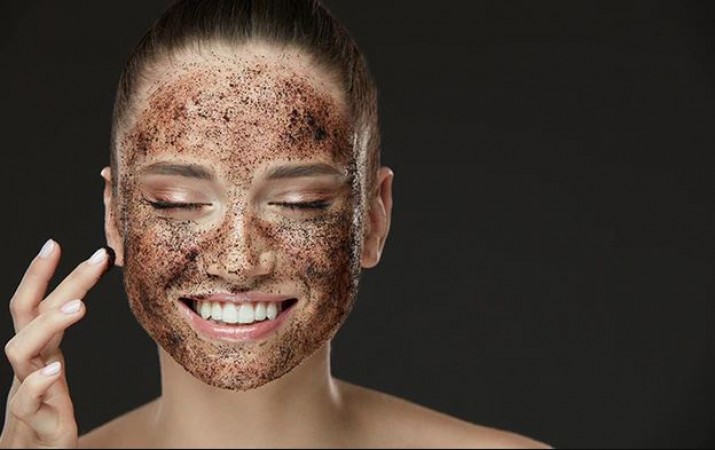
Exfoliation, the process of removing dead skin cells from the skin's surface, is an essential practice to maintain healthy and radiant skin. The accumulation of dead cells can lead to various skin issues, including acne, dullness, and uneven texture. By effectively exfoliating, one can unveil smoother, brighter, and more youthful-looking skin.
The Importance of Exfoliation
Exfoliation offers a multitude of benefits, including:
Enhanced Skin Texture: By removing dead skin cells, exfoliation promotes a smoother and softer skin texture.
Improved Skin Tone: Regular exfoliation can help even out skin tone, reducing the appearance of hyperpigmentation and dark spots.
Clearer Pores: Exfoliation helps unclog pores, preventing the formation of blackheads and whiteheads.
Better Product Absorption: By eliminating the barrier of dead skin cells, exfoliation allows skincare products to penetrate the skin more effectively.
Stimulated Collagen Production: Exfoliation can stimulate collagen production, leading to firmer and more youthful skin over time.
Understanding the Optimal Exfoliation Frequency
The frequency of exfoliation largely depends on an individual's skin type. Different skin types have varying degrees of sensitivity and resilience, necessitating tailored approaches to exfoliation.
Normal Skin
For individuals with normal skin, exfoliating two to three times a week is considered optimal. This frequency helps maintain a balanced skin texture without causing any irritation or over-drying.
Oily Skin
Those with oily skin can benefit from more frequent exfoliation. It is recommended to exfoliate daily or every other day to manage excessive sebum production and prevent clogged pores, which are common concerns for this skin type.
Dry Skin
While exfoliation is crucial for individuals with dry skin, it is essential to exercise caution to avoid stripping the skin of its natural oils. Exfoliating once or twice a week is typically sufficient to remove dead skin cells without exacerbating dryness.
Combination Skin
Those with combination skin should focus on exfoliating areas prone to excess oil, such as the T-zone, while being more cautious with drier areas. Exfoliating two to three times a week, with particular attention to the oily regions, can help balance the skin effectively.
Sensitive Skin
People with sensitive skin should approach exfoliation with caution, as aggressive or frequent exfoliation can lead to redness, irritation, and inflammation. It is advisable to exfoliate no more than once a week using gentle, non-abrasive exfoliants to prevent any adverse reactions.
Best Practices for Exfoliation
Achieving optimal results from exfoliation requires following the right techniques and utilizing suitable products tailored to individual skin types. Here are the best practices for effective exfoliation:
Pre-Exfoliation Preparation
Before initiating the exfoliation process, it's crucial to prepare the skin adequately. This involves:
Cleansing: Begin by thoroughly cleansing the face and body to remove any makeup, dirt, or impurities from the skin's surface.
Steaming: Consider steaming the face to open up the pores, making it easier for the exfoliant to penetrate and remove dead skin cells effectively.
Exfoliation Technique
When applying the exfoliant, it is essential to use gentle, circular motions to avoid any unnecessary skin irritation or damage. Excessive pressure or harsh scrubbing can cause micro-tears in the skin, leading to inflammation and sensitivity.
Post-Exfoliation Care
After exfoliation, it is crucial to follow up with appropriate skincare to soothe and hydrate the skin. This may involve:
Toning: Using a gentle toner helps restore the skin's pH balance and prepares it for subsequent skincare steps.
Moisturizing: Apply a nourishing moisturizer to replenish the skin's moisture barrier and prevent dryness.
Sun Protection: As exfoliation can make the skin more sensitive to the sun, it is imperative to apply a broad-spectrum sunscreen with an adequate SPF to protect the skin from harmful UV rays.
Choosing the Right Exfoliant
Selecting the appropriate exfoliant is vital to ensure effective results without causing any harm to the skin. There are two main types of exfoliants:
Chemical Exfoliants: These exfoliants, such as alpha hydroxy acids (AHAs) and beta hydroxy acids (BHAs), work by dissolving the bonds between dead skin cells, facilitating their removal. They are suitable for various skin types, including sensitive skin, as they tend to be gentler and less abrasive.
Physical Exfoliants: Physical exfoliants involve the use of granular substances, such as sugar, salt, or finely ground nuts, to manually slough off dead skin cells. While effective, these exfoliants can be harsh on the skin, leading to irritation, especially for those with sensitive or acne-prone skin.
Customized Exfoliation Regimen
Creating a customized exfoliation regimen based on individual skin needs is essential for achieving optimal results. Factors such as skin type, environmental factors, and skincare concerns should be considered when determining the ideal exfoliation frequency and product selection.
Exfoliation serves as a fundamental practice in any skincare routine, offering a myriad of benefits that contribute to healthier, more radiant skin. By understanding the importance of exfoliation, tailoring the frequency and technique to individual skin types, and following best practices, individuals can achieve smoother, clearer, and more youthful-looking skin. Remember that consistency and moderation are key when incorporating exfoliation into a skincare regimen, ensuring that the skin remains balanced, nourished, and protected. By adhering to these guidelines, anyone can enjoy the transformative effects of regular exfoliation and unlock the true potential of their skin's natural beauty.
Do micro exercises daily for not just one but hundreds of benefits, you will always remain fit